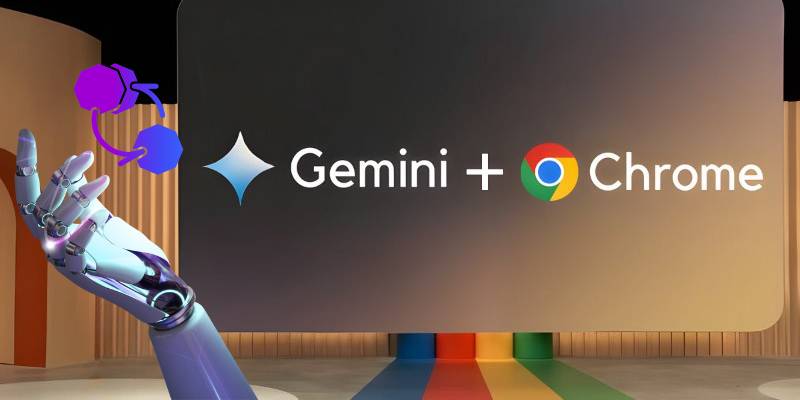Google just pulled off a two-step that’s as bold as it is controversial. Days after sidestepping a forced breakup in a U.S. antitrust case, the company announced it’s bringing its Gemini AI models directly into Chrome, giving millions of users built-in summarization and automation tools right in their browsers.
Think about that for a second. For years, Google’s browser was basically a portal to the web. Now it’s turning into something else—an AI assistant perched on your shoulder, ready to simplify, summarize, and “automate away” the tedious parts of surfing.
Some folks will cheer, others will grumble, but nobody can deny it’s a pivot with massive implications. The timing couldn’t be juicier. Just as regulators were sharpening their knives, a U.S. judge ruled Google wouldn’t face a breakup over its dominance in search.
Instead, the court demanded it make more of its search data available to rivals—arguably a lighter punishment for a company critics say controls the oxygen supply of the internet.
And yet, here we are: Chrome, with its huge market share, is suddenly an AI playground. Imagine the ripple effect on content creators. If Gemini’s summarization grabs the top of the funnel, where does that leave publishers whose bread and butter depends on clicks and eyeballs?
It’s déjà vu for media companies already suing Google over AI summaries, like Penske Media, which claims features like this cannibalize traffic to sites such as Rolling Stone and Variety.
Of course, Google isn’t the only tech titan doubling down. OpenAI is rumored to be developing a dedicated consumer device with Apple supplier Luxshare, an AI gadget built from scratch to live alongside (or maybe even replace) your smartphone.
That’s a pretty clear signal: the war for everyday AI presence is heating up, and the battlegrounds are hardware, browsers, and—inevitably—your data. Meanwhile, Google’s DeepMind unit just boasted that its Gemini 2.5 model outperformed top human teams in the International Collegiate Programming Contest.
Sure, it didn’t solve every problem, but for an AI system to beat the best of the best at abstract coding? That’s a shot across the bow, a reminder that these tools aren’t just clever parlor tricks anymore—they’re clawing their way into high-stakes intellectual turf.
Here’s my gut reaction: this is a power move, plain and simple. On paper, Gemini in Chrome makes browsing smoother, more efficient, maybe even fun.
But let’s not kid ourselves—Google is cementing its role not just as the gatekeeper of the web, but as the interpreter of it. If regulators were uneasy before, this integration is like tossing gasoline on the fire.
So the big question: is this progress, or consolidation disguised as convenience? Personally, I can’t shake the feeling that we’re inching closer to a world where the web is less about discovery and more about whatever answer the AI thinks you want. Handy? Absolutely. But also a little claustrophobic.

